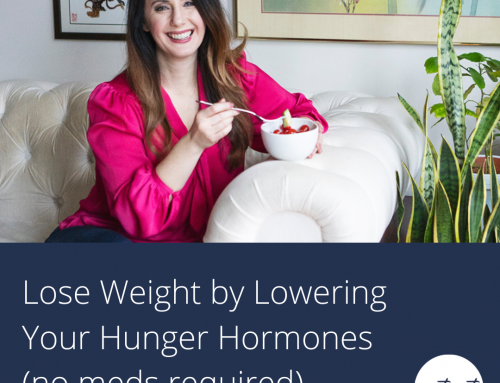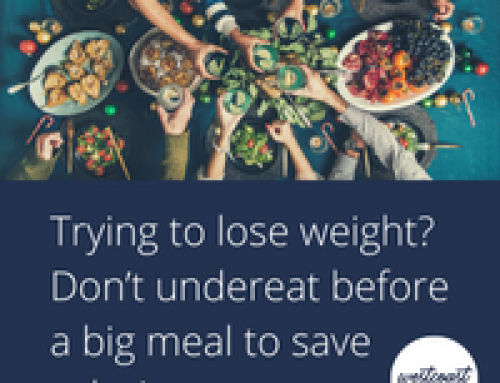We started this conversation over on Instagram last week, and got lots of messages so thought it would be great for a deeper dive here!
Do you ever feel like you’re putting in ALL the work – exercising, eating veggies, planning your meals, skipping the treats- and are getting increasingly frustrated that you’re not seeing physical results? ⠀
⠀
A lot of my clients who come in feeling like their body is broken are in this situation. They’re not overdoing the treats, they actually feel like they’re watching every bite they put in their mouths, they’re putting in more and more hours training on the treadmill or in the gym. ⠀
⠀
Chronic undereating, with or without overtraining, can halt your progress. This might be you if some of these sound familiar: ⠀
- You’re eating less than 1500 calories⠀
- You’re a chronic dieter or calorie watcher
- You don’t get enough sleep, or take enough days off exercise on top of low calorie intake⠀
- You feel tired ALL THE TIME⠀
- You get sick often⠀
- You aren’t getting better in your sport or at the gym, even though you’re consistent.⠀
- You’ve noticed that you’re gaining more fat (often most noticeable around the midsection), even though you’re eating and exercising the same.⠀
- At its most severe, you may have lost your period (for women), or been diagnosed with low bone density (women and men both)⠀
This syndrome is called RED or RED-S when a sport/exercise is also in play. Relative Energy Deficiency is a syndrome that causes shifts in hormonal balance & metabolism in response to chronic under-nutrition. This happens more quickly in athletes, but may also appear in non-athletes who have been under eating for years (chronic dieters, this is you!) or undereating/overtraining on top of significant physical or emotional stressors. ⠀
What do we know?
- Relative energy deficiency is most studied in athletes but we are increasingly recognizing it in non athlete populations.
- Women may be more sensitive to energy deficiency. Evolutionarily, it was key that your body reproduced only in times where there was adequate food and resources, so slowing metabolism and reducing fertility in times of lack would have been an excellent strategy at the time. Women are also much more likely to chronically diet these days, so risk is higher.
- Undernutrition can be both caloric (not enough calories from protein, carbs, or fats) and micronutrient (think vitamins, minerals, antioxidants etc) related. Quantity and quality count.
- We know that we don’t quite understand all the details yet. If someone offers you bloodwork or a “sure thing” diagnosis, proceed with caution.
So if you feel like you really are on track as far as activity and how you eat, you may need to focus on ADDING food – calories, protein, healthy fats, and vitamins/minerals/antioxidants – in a measured way to help restore a normal balance and calm your body’s alarm bells. Depending on how significant the energy deficiency is, this can take weeks or months to repair but is completely worth it to feel energized, on track and healthy again. Typically clients don’t gain weight during this time, outside of normal fluctuations. And sometimes they actually lose weight in this phase! Patience is a virtue with this kind of issue, so the goal is to focus on the habits (what you’re eating,
This can be SUPER scary when the goal has been leanness or weight loss. But with guidance, patience, and the right approach it is possible to restore the systems to normal. I usually start clients with 200-300 extra calories per day from nutrient rich foods such as:
- Nutrient dense proteins like eggs and fish
- Healthy fats like nuts/seeds and avocados
- Healthy whole food carbs such as fruit, whole grains, beans and legumes
- While you’re at it, extra sleep or rest is key for recovery if you’ve been getting less than 6-8 hours or having poor quality sleep.
- If you’re super active, make sure you have a dedicated rest day. This can be hard if you LOVE what you do, be it running, biking, or lifting heavy, but is a non-negotiable if over-training got you here.
There are lots of reasons you may not be seeing progress that aren’t related to RED or RED-S. Insulin resistance, quality and timing, and finding the right macronutrient balance (ratios of carbs, proteins and fats) for YOUR body are all more common reasons I see clients struggle. It is absolutely key that you work with someone who can assess your situation and get to the bottom of what’s holding you back carefully and gradually.
PS – Did you get the email I sent earlier this week about the official launch of our 5 Month Lifestyle Makeover package?
If you missed it, you can read all about what makes it our best option for busy parents and professionals, who it’s the perfect fit for, and who might need to go another route here.
The bonus for clients from our email list is pretty awesome and will go to our first 5 sign ups! Our first 5 get:
- Your choice of one of my favourite healthy cookbooks or wellness reads.
- A 6 month gold subscription to one of the best tracking apps out there, Cronometer!
Click the Book Me button (top right hand corner of this page) if you have any questions or would like to set up a time to connect. We’ll figure out what your goals and challenges are, and see which package might be the right fit.
Need some help getting your meals for the week balanced and prepared? If you’d like to receive our free Meal Planning Getting Started Guide AND get in on our weekly emails about all things nutrition so you can get clarity and confidence on what you’re eating, join us here!







